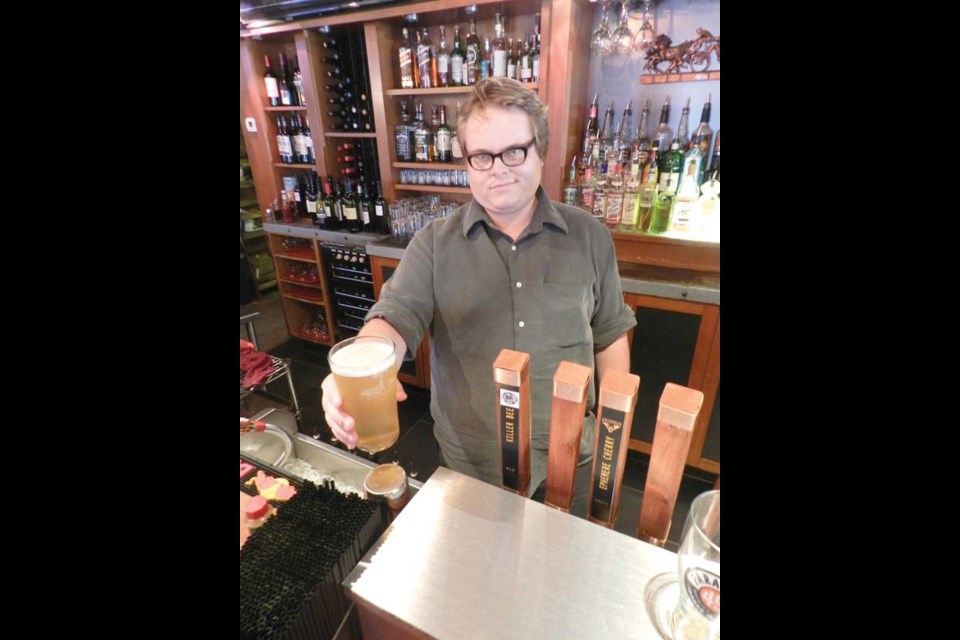If new, relaxed liquor laws are to become a thing of the future, the government has to move forward with caution on the potential fall-out effects, said a pair heading up local social service groups.
"To me, it's always dangerous when you relax the liquor laws and make liquor more available at more times and in different places," said Michael McCoy, executive director of Touchstone Family Association, a non-profit community based social service agency that for the past 30 years has focused on preserving and enhancing family relationships.
"I think that when we're talking about addictive substances, you have to look at what is the risk to families and children," McCoy said. "To me, it's about the message you are giving young people. You walk into a corner store - what do you buy, a bottle of pop or a bottle of beer."
McCoy added that 80 per cent of the children who are abused in B.C. live in alcohol or drug abusing households. It's a stark figure he believes underlines the core of the situation - the way alcohol consumption has become a "normal" part of society.
It's a viewpoint shared by Richard Dubras, executive director of Richmond Addiction Services, who cited the manner in which alcohol is treated at a societal level in the United Kingdom.
"There, you are allowed to have minors in a pub," Dubras said. "That's normalization of content. That's saying consumption of alcohol is normal, that everyone does it.
And as soon as you do that to young people, they assume it in their culture that drinking alcohol is normal."
Dubras likened it to the use of what he terms "power walls" to sell tobacco products - an impressive display of items in a retail environment designed to attract maximum attention from consumers.
"You can't power wall (tobacco) anymore. All the cigarettes are locked away," he said. "Prevention evidence shows, the less visible the drug, the less likely people will see it as normal. So, as soon as you decrease the normalization of alcohol consumption, you lessen the impact alcohol is going to have."
Dubras also suggested dropping the cost of drinks with less kick to address liquor consumption.
"We would very much benefit, as a community, if we were paying less money for less intense alcohol," he said.
Dubras contended such a move would lower consumption of higher alcoholic value beverages.
"In looking at harm reduction, if people are drinking beverages with less alcohol content, then they are going to be suffering less consequences," he said. "Everyone has a limit of how much they can drink. Certainly, there's a population that drinks to get drunk. But when we're looking at the vast majority of those who are drinking, they're drinking for taste and a little bit of the effect.
"So, if you're going to be at a restaurant consuming a glass of wine, it's much safer to be drinking one at six per cent alcohol than at 12 per cent."
On whether the laws should be relaxed to allow minors into pubs, with their parents,
during the daytime, Dubras is opposed to the idea.
"I think it's important to have clear boundaries as to where adults go and where children go," he said.
"We have to weigh the benefits of economic growth against the consequences to youth, families and adults. And that's something I will be closely watching."
McCoy concurred. Having youth in those types of environments adds to the acceptance of alcohol consumption as normal in society, a fact that saddens him.
"I feel very dismal about the situation on alcohol, because we have enculturated it," he said. "We don't talk about it as an addictive substance. It's just alcohol."
McCoy predicts there will likely be a loosening of current liquor laws in B.C. And if that occurs he'd like to see an honest investment by the government to address counselling support regarding responsible drinking.
"If they (the government) increase the sale of alcohol, then they should proportionately increase the funding to support programs that deal with issues around alcohol and alcohol abuse."



